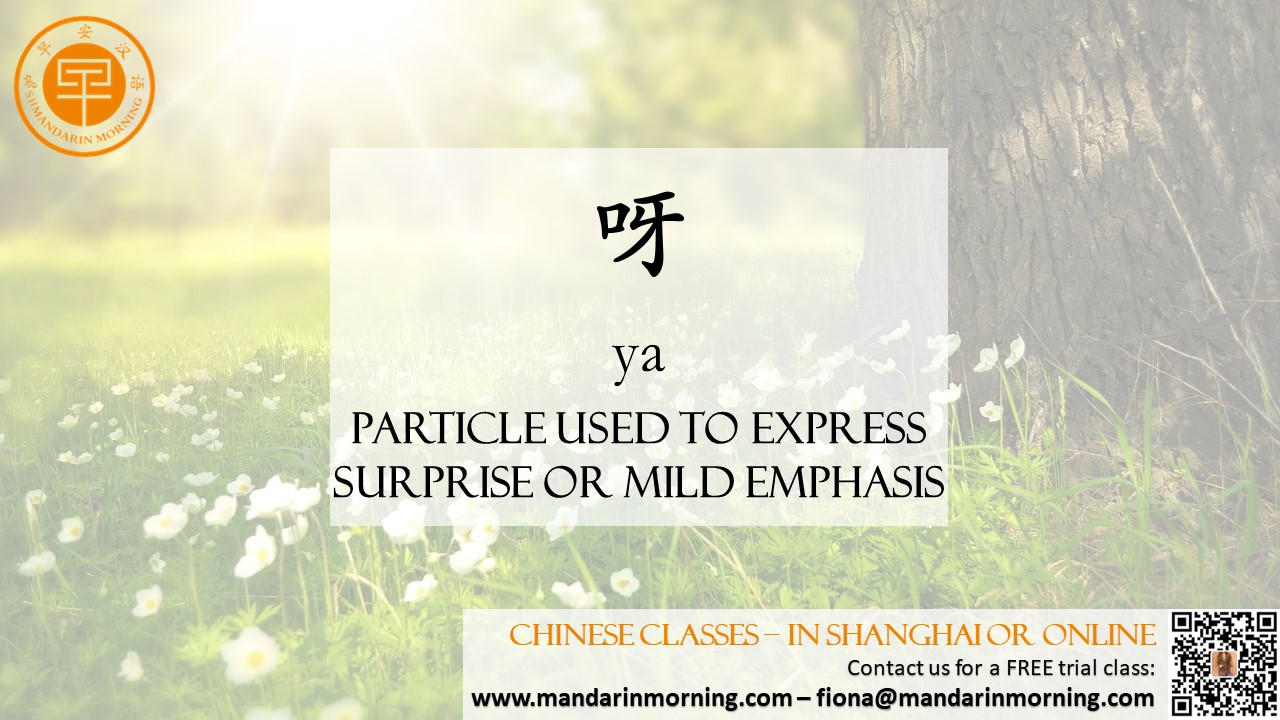| Sentence-final particles are small words or sounds that you add at the end of a sentence in Chinese. They can help convey a specific tone, emotion, or meaning. In part two of our article, we cover two more of the most common particles and show you how to use them effectively.  3. 啊 (a) The particle 啊 (a) is often used to convey a sense of urgency, exclamation, or excitement. Let’s look at the use cases one by one. (1): Using 啊 (a) for Exclamation Adding 啊 (a) can have a similar effect as an exclamation mark in English. Examples: 对啊!(duì a) - You're right! 真好吃啊!(zhēn hǎo chī a) - It's so delicious! (2): Using 啊 (a) for Surprise When you want to express surprise, you can add 啊 (a) to make your reaction sound more genuine and natural. Example: 真的啊? (zhēn de a?) - Really? (3): Using 啊 (a) for Doubt You can also use 啊 (a) to express that you're not entirely sure about the information and are seeking confirmation. Example: 你确定啊? (nǐ què dìng a?) - Are you sure? (4): Using 啊 (a) for Agreement Sometimes, you might want to add 啊 (a) to emphasize that you agree with someone. Example: 对啊,我也这么觉得。 (duì a, wǒ yě zhè me jué de.) - Yeah, I think so too. (5): Using 啊 (a) for Urgency or Concern 啊 (a) can also impart a sense of urgency to a statement and make it sound like a command. Examples: 小心啊! (xiǎo xīn a) - Be careful! 4. 呀 (ya) The particle 呀 (ya) is used to express a sense of friendliness, to soften a statement, or to make a question sound more polite. (1): Using 呀 (ya) for Friendliness When you want to express friendliness or create a more casual tone in a conversation, add 呀 (ya). Example: 你好呀! (nǐ hǎo ya!) - Hi there! (2): Using 呀 (ya) to Soften a Statement 呀 (ya) can make basically any statement sound softer. Example: 这个好吃呀。 (zhè ge hǎo chī ya.) - This translates to "This is delicious," but the addition of 呀 (ya) makes the statement sound more casual and less assertive. (3): Using 呀 (ya) to Make a Question Polite Sometimes, you want to make a question more polite or less intrusive. In this case you can add 呀 (ya). Example: 你叫什么名字呀? (nǐ jiào shén me míng zi ya?) - What's your name, please? |